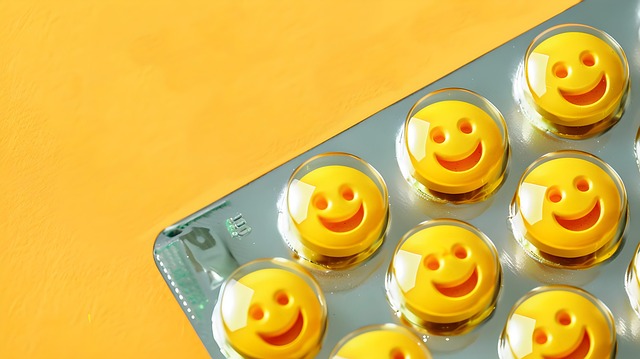Ketamine, initially an anesthetic, offers hope for treatment-resistant depression (TRD) through its unique action on brain receptors. It provides rapid mood lifting effects and symptom reduction within hours, appealing to those needing immediate support while exploring long-term alternatives. Studies show effectiveness in major depressive disorder and bipolar depression, but individual responses vary, highlighting the importance of consulting healthcare providers before starting ketamine therapy for mental health treatment. Safety and side effects, such as nausea, dizziness, hallucinations, and elevated blood pressure, must be considered with regular monitoring during sessions.
Ketamine, a compound initially developed as an anesthetic, has emerged as a promising alternative for those suffering from treatment-resistant depression. This article explores its potential as a novel approach to mental health treatment, delving into how it can benefit individuals whose conditions remain untreated by conventional methods. We will discuss eligibility criteria, safety concerns, and side effects, providing insights for patients considering this innovative therapy.
Understanding Ketamine: A New Approach to Mental Health Treatment
Ketamine, a medication initially developed as an anaesthetic in the 1960s, has emerged as a promising novel approach to mental health treatment, particularly for individuals living with treatment-resistant depression (TRD). It acts on specific receptors in the brain, modulating neurotransmitter systems that play a crucial role in mood regulation. This unique mechanism of action sets ketamine apart from traditional antidepressants and offers hope for those who haven’t responded to conventional treatments.
For patients with TRD, where other therapies have proven ineffective or only provided limited relief, ketamine infusions present a potentially game-changing option. It rapidly produces a lifting effect on mood and can offer significant symptom reduction within hours, unlike typical antidepressants that may take several weeks to reach full efficacy. This rapid action makes ketamine an appealing choice for individuals struggling with severe depression who need immediate support and potential relief while exploring other long-term treatment options.
Treatment-Resistant Depression: When Conventional Methods Fail
Treatment-resistant depression (TRD) is a devastating condition where individuals experience persistent symptoms despite trying multiple conventional treatments, such as antidepressants and psychotherapy. This form of depression can significantly impact daily life, leading to feelings of hopelessness, loss of interest in activities once enjoyed, and even suicidal thoughts. In the world of mental health treatment with ketamine, TRD presents a unique challenge that has led researchers to explore alternative therapies.
When conventional methods fail, ketamine emerges as a promising option. This dissociative anesthetic has shown remarkable potential in managing TRD, offering rapid and sustained improvements in mood and overall well-being. Studies have demonstrated its effectiveness, especially for individuals who haven’t responded positively to standard antidepressant medications. The mechanism of action behind ketamine’s positive effects on the brain is still being investigated, but it appears to modulate neurotransmitter systems, potentially providing much-needed relief for those struggling with treatment-resistant depression.
Who Can Benefit from Ketamine for Depression?
Ketamine for depression has emerged as a promising option for individuals who haven’t found relief from traditional treatments, offering hope to those struggling with treatment-resistant mental health conditions. Those who can benefit include adults and sometimes adolescents dealing with major depressive disorder (MDD) or bipolar depression when other therapies have been ineffective.
Several factors contribute to a patient’s potential success with ketamine therapy. Individuals with co-occurring conditions like anxiety, trauma history, or substance use disorders may find ketamine particularly helpful as it can address these comorbidities simultaneously. Additionally, those with chronic or severe depression that hasn’t responded to multiple medication trials could experience positive effects from ketamine infusions. However, each person’s response is unique, and consulting a qualified healthcare provider is crucial to determine if ketamine for mental health treatment with ketamine is the right approach.
Navigating Safety and Side Effects: Important Considerations for Patients
Navigating safety and side effects is an essential aspect of considering ketamine as a mental health treatment option for depression, especially in cases of treatment-resistance. While ketamine has shown promising results for some individuals, it’s crucial to understand potential risks. Patients should be aware that this therapy may not suit everyone and could have adverse effects, ranging from mild to more serious outcomes. Common side effects include nausea, dizziness, and feelings of detachment, while less frequent but more severe reactions may involve hallucinations or elevated blood pressure.
Regular monitoring by medical professionals during ketamine sessions is vital to ensure patient safety. Healthcare providers should carefully assess each patient’s medical history, current medications, and overall health before administering ketamine. Patients must also be educated on recognizing warning signs and reporting them promptly, enabling timely intervention if any concerning symptoms arise during or after treatment.
Ketamine, a compound once primarily known for its anesthetic properties, has emerged as a promising new tool in the arsenal against treatment-resistant depression. With its ability to modulate neurotransmitters and neuroplasticity, it offers hope to individuals who haven’t found relief from conventional mental health treatments. While safety and side effects should be carefully considered, clinical trials have shown significant benefits for certain patients. Further research is needed to identify those most likely to respond positively to ketamine-assisted therapy, expanding access to this potentially life-changing treatment for mental health care.
